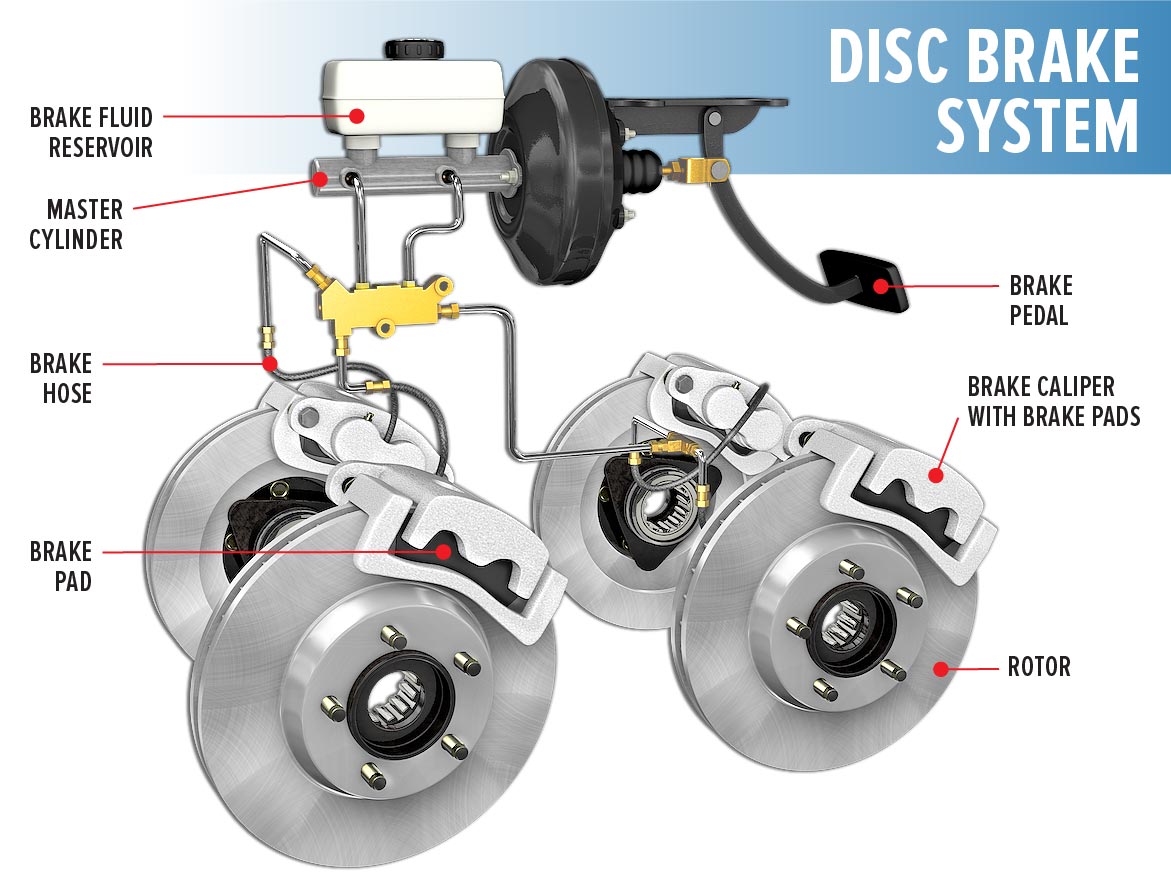Imagine this: You’re driving down a busy street, approaching a red light. You gently press the brake pedal, but instead of slowing down, your car keeps going. The pedal goes all the way to the floor, and you feel a sickening sense of dread. This terrifying scenario, known as brake failure, can be a driver’s worst nightmare. But understanding the causes and knowing how to react in this situation can help you stay safe.

Image: www.2carpros.com
Brake failure can happen due to a variety of factors, ranging from simple wear and tear to more serious mechanical issues. This article will delve into the different causes of brake failure, exploring the science behind why your brakes might suddenly stop working. We’ll also provide practical tips on what to do when your brakes go to the floor, helping you stay calm and navigate a potentially dangerous situation. This information can empower you to make informed decisions and increase your confidence on the road.
Understanding the Science Behind Your Brakes
Before we dive into the reasons for brake failure, let’s understand how brakes work. Your car’s brakes rely on a complex system of components to slow down and stop your vehicle. It all starts with you pressing the brake pedal. This action leverages hydraulic pressure to push brake pads against your car’s wheel rotors or drums, creating friction and slowing you down.
There are several crucial parts involved:
- Brake Pedal: The lever you press to activate the braking system.
- Master Cylinder: A reservoir containing brake fluid and a piston that transmits hydraulic pressure to the brake lines.
- Brake Lines: Tubes that carry the pressurized brake fluid to the calipers or wheel cylinders.
- Calipers or Wheel Cylinders: Devices that contain pistons that squeeze the brake pads against the rotors or drums.
- Brake Pads: Friction materials that create the heat that slows your car.
- Rotors or Drums: Metal discs or cylinders that rotate with the wheels.
The Most Common Causes of Brake Failure
While it might be unsettling to think about your brakes suddenly failing, it’s crucial to remember that these situations are relatively uncommon. However, understanding the possible causes can help you be prepared.
1. Brake Fluid Leak: Brake fluid is essential for hydraulic pressure. If it leaks out, your brakes will gradually lose pressure, and the pedal might go to the floor.
2. Worn-out Brake Pads or Rotors: Over time, brake pads wear down. When they’re worn out, they can’t create enough friction to effectively stop your car. Worn rotors can also contribute to brake failure.
3. Air in the Brake Lines: Air in the brake lines is a common culprit. It can compress when you press the pedal, making the pedal feel spongy and rendering the brakes less effective.
4. Faulty Master Cylinder: A damaged or malfunctioning master cylinder can’t effectively transmit hydraulic pressure, resulting in brake failure.
5. Broken Brake Lines: If the brake lines are damaged or corroded, brake fluid can leak out, and the brakes may fail.
6. Malfunctioning Calipers or Wheel Cylinders: If these components fail, they can’t effectively squeeze the brake pads, resulting in loss of braking power.
What to Do When Your Brakes Fail
While it’s a scary scenario, staying calm and knowing what to do can help you avoid an accident. Here’s a step-by-step guide:
- Stay Calm: Panic can worsen the situation. Try to stay calm and assess the situation quickly.
- Shift to a Lower Gear: Down-shifting can help slow your car down without relying on your brakes.
- Use Your Emergency Brake (Parking Brake): While it may not stop your car immediately, engaging the emergency brake can help slow down and stabilize your vehicle.
- Signal and Steer Carefully: Use your turn signals to alert other drivers that you are slowing down. Steer your car toward the side of the road.
- Find a Safe Place to Stop: Look for any safe spots to pull over and stop your car, such as a wide shoulder of the road or a parking lot.
Important Note: Avoid slamming on the brake pedal even if your brakes feel as if they are working. Repeated hard braking can overheat the brakes and make the problem worse.

Image: enginelistute.z19.web.core.windows.net
Prevention is Key
The best way to deal with brake failure is to prevent it in the first place. Here are a few tips:
- Regular Brake Inspections: Get your brakes inspected regularly by a qualified mechanic.
- Check Your Brake Fluid: Check your brake fluid level regularly and top it off if it’s low.
- Replace Worn Out Parts: Replace worn-out brake pads and rotors promptly.
- Avoid Aggressive Braking: Hard braking can accelerate wear and tear on your brakes.
Brakes Go To Floor When Car Is Running
Conclusion
Brake failure can be a very real and dangerous issue. By understanding what causes brake failure and knowing how to respond in such a situation, you can stay safe and drive with confidence. Remember – prevention is key! Regular brake maintenance, vigilant monitoring, and a calm head are your best tools to avoid this terrifying experience. Remember to share this information with your friends and family to increase awareness and promote safe driving practices.





